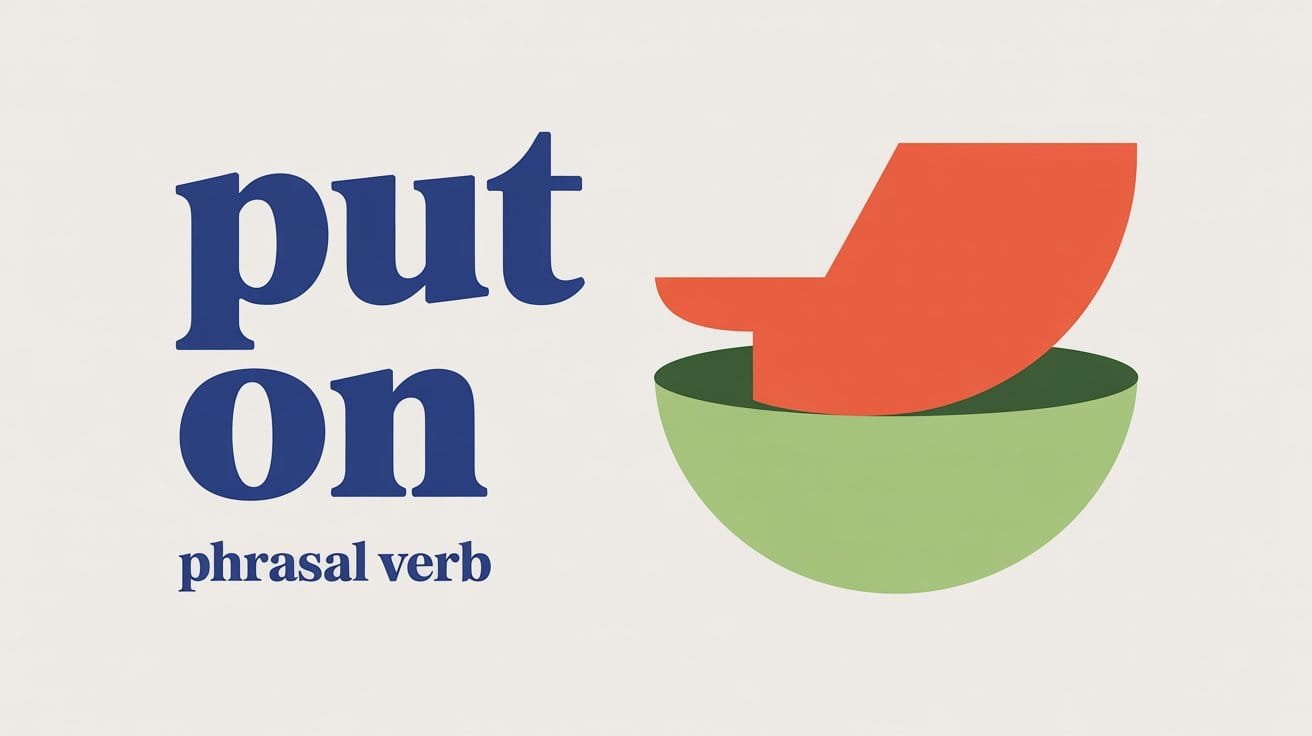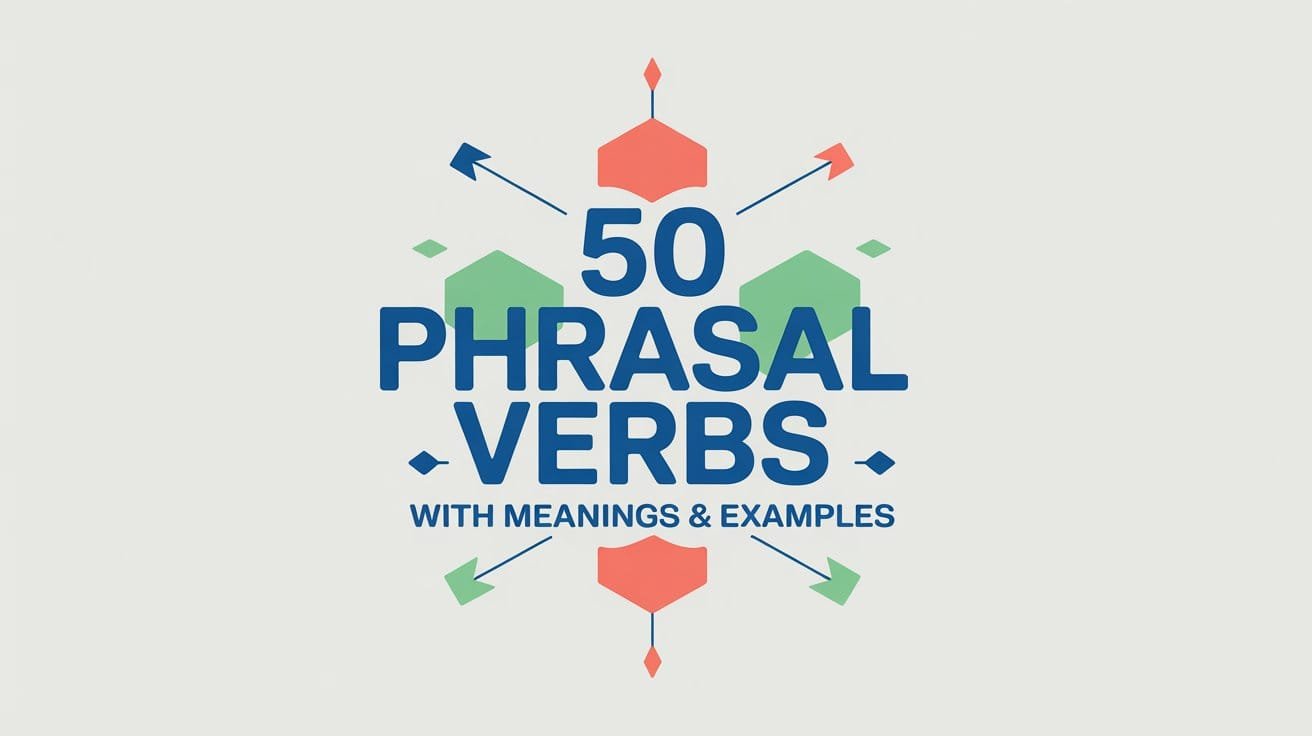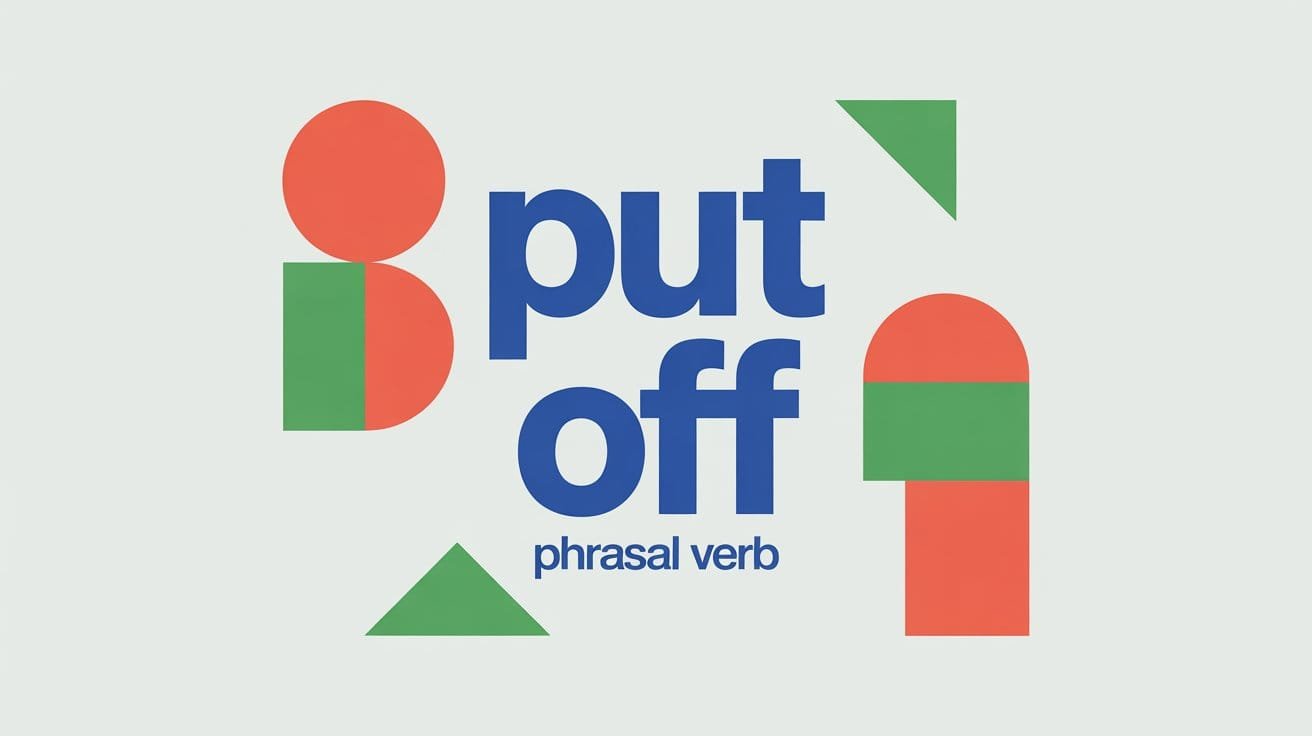The phrasal verb put on is one of the most common expressions in English, and one of the most flexible. Depending on the situation, it can mean dressing yourself, gaining weight, pretending, or even organizing an event. That’s why it’s important to look at the context to understand what it really means.
In this guide, you’ll learn the different meanings of put on, how to use it in sentences, and how to avoid confusion when this everyday phrase shows up in conversation or writing.
What Does “Put On” Mean in English?
The phrasal verb put on can have several meanings based on the context in which it’s used. It’s commonly heard in both spoken and written English and often appears in daily situations.
At its most basic, put on can mean to wear something, like clothes or accessories. But it also extends to other actions, such as gaining weight, faking emotions, or organizing an event. That’s why understanding the surrounding words and tone of the sentence is key to grasping the right meaning.
Common Meanings of “Put On” with Examples
To wear clothing or accessories
Meaning: To place clothes, shoes, or other items on your body.
Examples:
- He quickly put on his jacket when it started to rain.
- She put on a scarf before heading out into the cold.
- Don’t forget to put on your ID badge before entering the building.
To organize or present something (like a show or event)
Meaning: To arrange or perform an activity, event, or production.
Examples:
- The school is putting on a play for the community this Friday.
- They put on a fantastic fireworks show during the festival.
- The museum put on an exhibit about ancient civilizations.
To gain weight
Meaning: To increase in body weight, often gradually.
Examples:
- I’ve put on a few kilos since I stopped going to the gym.
- He put on weight after his injury limited his movement.
- She noticed her dog had put on some extra pounds over the winter.
To apply or place something on a surface
Meaning: To cover or layer something onto another surface.
Examples:
- She put on some sunscreen before leaving the house.
- He put on a fresh coat of paint in the living room.
- Can you put on some background music while we work?
To pretend or fake a behavior, voice, or emotion
Meaning: To act in a way that is not genuine, often to impress or deceive.
Examples:
- He put on a smile even though he was clearly upset.
- Stop putting on that accent; you don’t speak like that.
- She put on an air of confidence before the interview.
How to Use “Put On” in Sentences
The phrasal verb put on is both a transitive phrasal verb and a separable phrasal verb, which means it always needs an object and allows flexibility in word order. Understanding how it works will help you use it correctly in different types of sentences.
It’s a transitive phrasal verb
This means put on must act on something or someone. It can’t stand alone without an object.
- She put on her coat.
- He put on some music.
- He put on. (What did he put on? The sentence is incomplete.)
It’s a separable phrasal verb
You can place the object between put and on, especially when the object is a noun. However, if the object is a pronoun, it must be placed between the verb and the particle.
- He put on his shoes.
- He put his shoes on.
- He put them on.
- He put on them. (Incorrect word order)
Pay attention to the meaning based on context
Since put on can refer to wearing clothes, gaining weight, faking emotion, or organizing something, the surrounding words will help you figure out the intended meaning.
Compare:
- “She put on a sweater before leaving.” (wearing clothes)
- “She put on a confident attitude.” (pretending)
- “They put on a show for the guests.” (organizing an event)
Synonyms of “Put On” (Grouped by Meaning)
Since put on has several meanings, its synonyms change depending on how it’s used. Below are some useful alternatives for each common meaning.
To wear clothing or accessories
- Dress in
- Slip on
- Get into
- Pull on
Example:
“She put on her boots.”
→ “She slipped on her boots.”
To organize or present something
- Host
- Stage
- Arrange
- Set up
- Perform
Example:
“The school is putting on a play.”
→ “The school is staging a play.”
To gain weight
- Gain
- Add (weight)
- Pack on (informal)
Example:
“He put on some weight.”
→ “He gained some weight.”
To apply or place something
- Apply
- Spread
- Rub on
- Layer
Example:
“She put on sunscreen.”
→ “She applied sunscreen.”
To pretend or fake something
- Fake
- Pretend
- Feign
- Act
- Imitate
Example:
“He put on a smile.”
→ “He faked a smile.”
Related Phrasal Verbs with “Put”
The verb put forms a variety of phrasal verbs in English, each with distinct meanings. Learning them together can help you understand patterns and expand your vocabulary.
Put off
Meaning: To delay something or discourage someone
Example: We had to put off our vacation because of the weather.
Put up with
Meaning: To tolerate something unpleasant
Example: I can’t put up with this noise any longer.
Put out
Meaning: To extinguish something or cause inconvenience
Example: The firefighters quickly put out the blaze.
Put through
Meaning: To connect someone by phone or make someone experience something
Example: The operator put me through to the doctor.
Put down
Meaning: To place something on a surface or to criticize someone
Example: She put down her bag and sat on the bench.
Example: He constantly puts others down to feel better.
Each of these uses a different particle after put, which changes the meaning entirely. Paying attention to these small changes helps build fluency.
Example Sentences with “Put On” Phrasal Verb
Below are example sentences that show how put on is used across its different meanings. Each one reflects natural usage and real-life situations to make understanding easier.
- She put on her running shoes and headed out for a jog.
- Don’t forget to put on a helmet before you ride.
- He put on his tie in a hurry and rushed to the meeting.
- The theater group is putting on a modern version of Hamlet.
- The local library put on a free storytelling session for children.
- After quitting his fitness routine, he put on nearly five kilograms.
- She noticed the cat had put on more weight than usual.
- She put on a bright red lipstick before the party.
- Please put on some calming music while I read.
- He put on a cheerful voice even though he was tired.
- Stop putting on that attitude—it doesn’t suit you.
- She put on a brave face and walked into the room.



